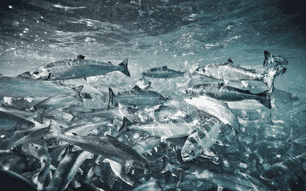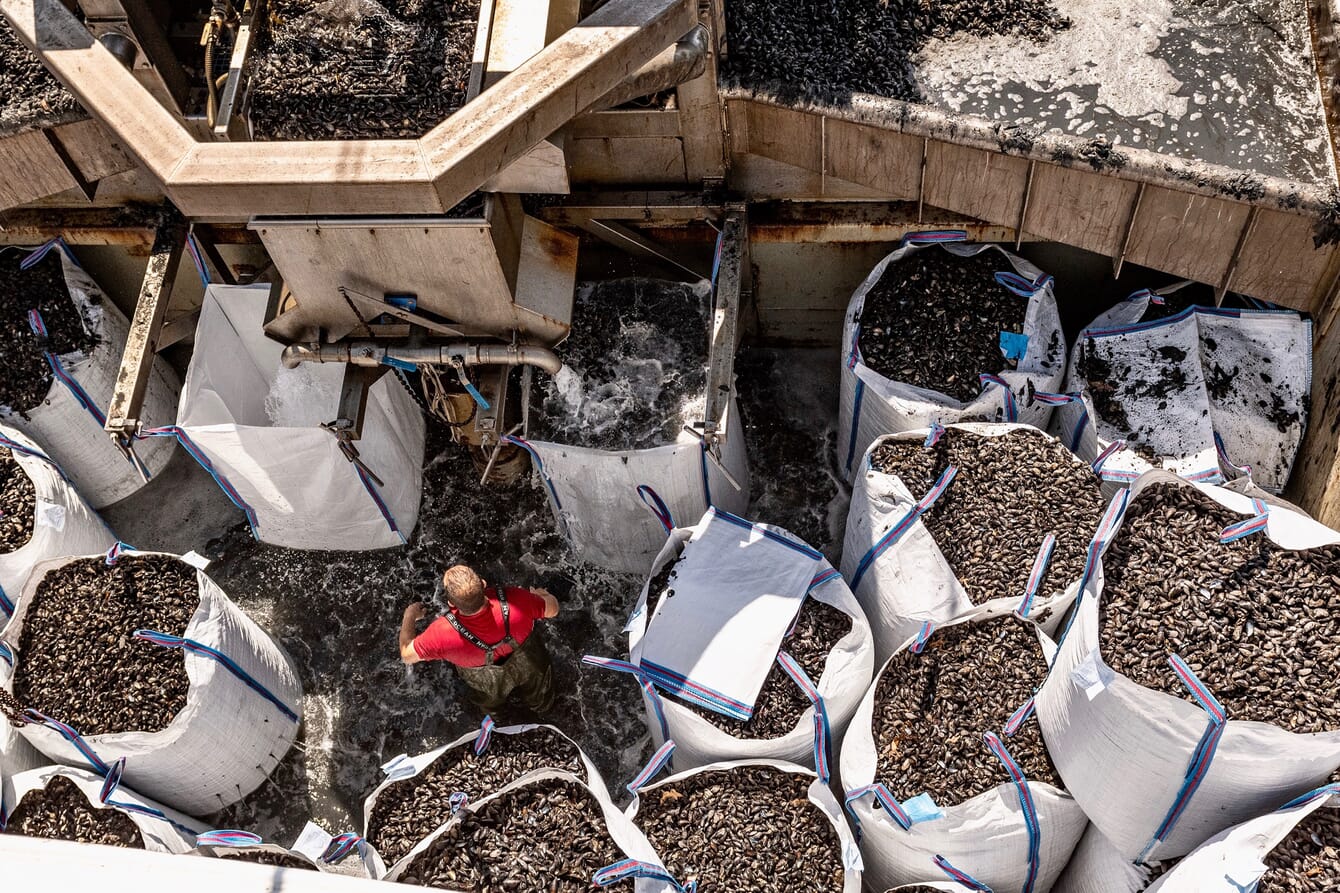
Farmers operate a "catch and grow" system where they collect wild seeds and let them grow out in sheltered bays © John Jones
Since the early 1960s, the Menai Strait in North Wales has been home to mussel farmers, operating a “catch and grow” system. The farmers collect mussel seeds from wild beds in Morecambe Bay and Caernarfon Bar, placing them in lays situated in the sheltered waters of the Menai Strait for harvesting once they have grown. Sixty years on, the mussel farmers are concerned that their livelihoods may be lost due to shellfish classification sampling protocols and Brexit.
Safety first
Seafood safety is a top priority for seafood producers and the UK Government. To reduce the risks associated with E. coli that may accumulate in shellfish from the water, the Food Standards Agency (FSA) oversee a classification protocol that determines under which conditions shellfish can be sold for human consumption.
“Shellfish production and relaying areas are classified according to the levels of E. coli detected in shellfish flesh,” says Linden Jack, head of food and feed safety at the FSA. Local authorities or contractors collect samples from production areas from pre-determined representative monitoring points. Official laboratories then analyse the samples for E. coli.
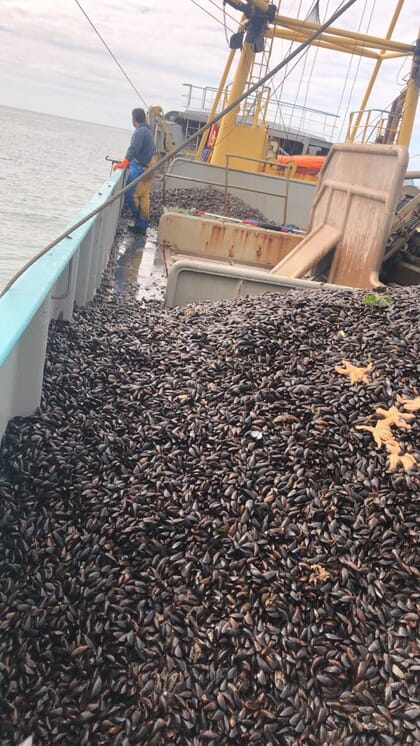
Changes in food safety regulations and additional red tape stemming from Brexit may be undermining local mussel farmers © Valente Caernarfon
The level of E. coli detected in the samples over several years determines the classification of the harvesting area, which ranges from A (the least contaminated) to C (the most contaminated).
“The classification of a production area [then] determines the treatment required before shellfish may be marketed for human consumption,” Jack explains.
In both the UK and EU, shellfish from Class A areas do not require further processing before being sold for human consumption, but shellfish from Class B or Class C waters must undergo processing to ensure they are safe. The production areas used by the Menai Strait mussel farmers are Class B, so the mussels must be processed either with an approved heat treatment, depuration in an approved establishment, or relaying for at least one month in a classified Class A relaying area.
“The protocols are very important for protecting people’s health. In many ways, we are very happy with the regulations,” says Jim Andrews, director of the Menai Strait Fishery Order Management Association (MSFOMA). However, the Menai Strait farmers wonder if the sampling protocol is unfairly classifying their production areas as Class B.
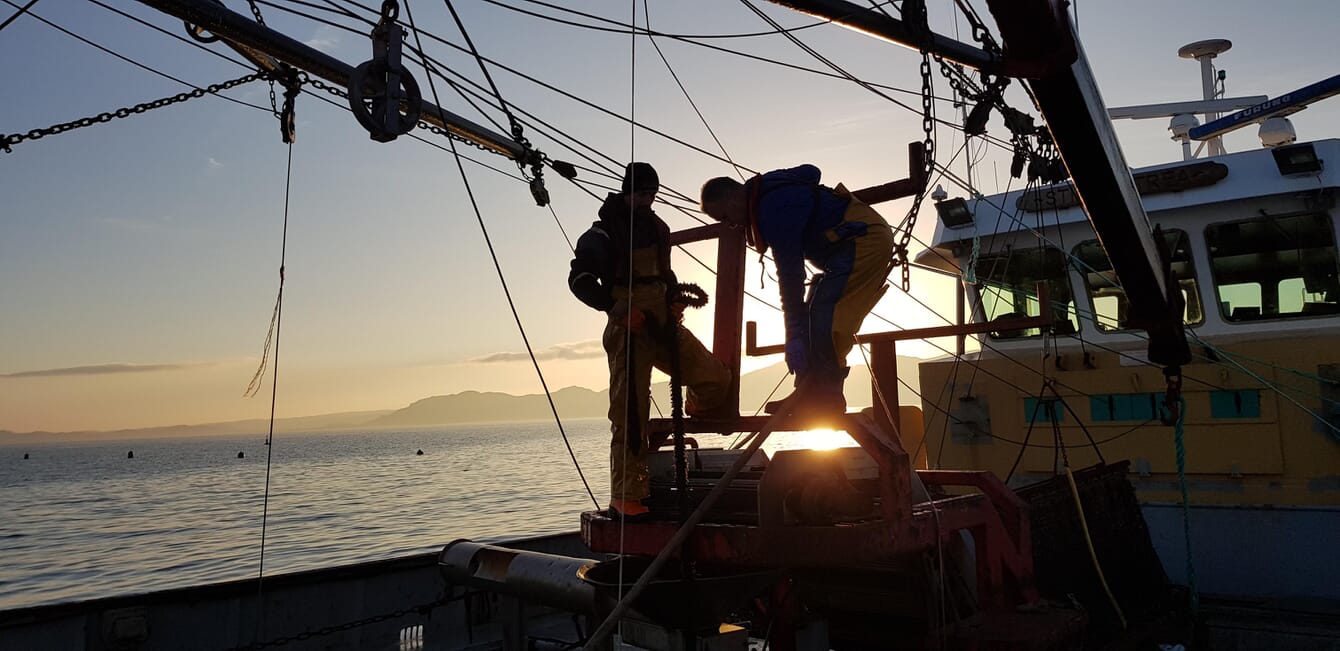
Shellfish from Class A areas do not require further processing before being sold for human consumption, but the Menai Strait is a Class B area
The devil in the detail
For a production area to obtain a Class A rating in England and Wales, three requirements must be met. First, at least ten samples must be taken every year. Second, 80 percent of the samples mustn’t have E. coli levels greater than 230 E. coli/100g. Third, none of the samples can have E. coli levels of more than 700 E. coli/100g. The problem the Menai Strait farmers are finding themselves in lies in that 80 percent requirement.
Although many samples from the Strait show E. coli levels to be less than or equal to 230 E. coli/100g, the number falls slightly short of the 80 percent requirement for Class A.
“For the data they’ve [the FSA] got, they’ve arrived at the right place in terms of classification,” says Andrews. “What we would like to see, is those relatively few Class B results being investigated.”
Investigations are undertaken when a sample returns an E. coli level higher than permitted by a production area’s current classification.
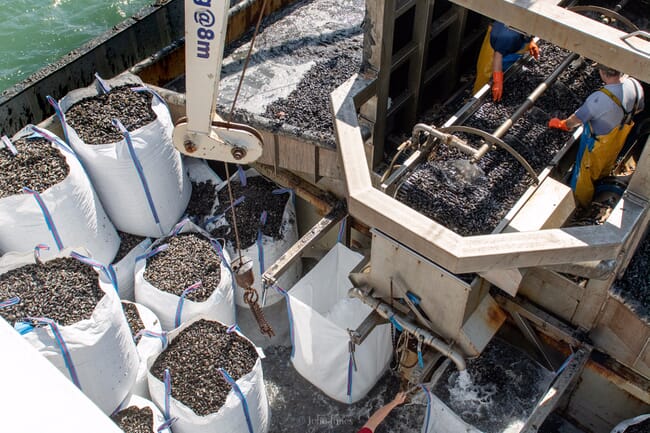
Local mussel farmers believe that their Class B rating may stem from heavy and persistent rainfall that causes a surge in runoff into the sea © John Jones
“Information relating to the potential causes of the high result is gathered, which will include information submitted by local stakeholders, other government departments and an assessment of sampling data. Additional sampling may also be carried out to monitor the level of contamination and determine when results return to levels below the classification threshold, enabling any public health protection measures to be lifted,” Jack explains.
Should this investigation find the result to be anomalous, it may be disregarded, allowing the production area to retain its existing classification. For the Menai Strait farmers, “because our beds are Class B, only Class C results will be investigated,” says Alan Winstone, chair of MSFOMA.
Are the Class B results an anomaly worth investigating?
The argument MSFOMA is making for investigating their Class B results doesn’t just concern the number of Class B results but with what they believe to be the primary cause of the results – heavy or persistent rainfall.
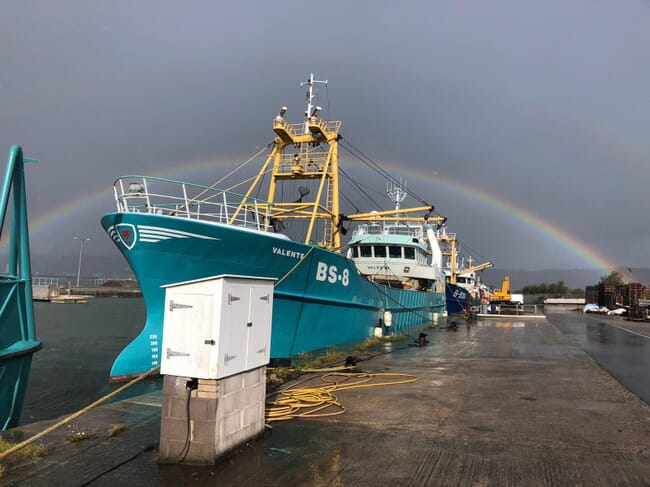
MSFOMA is calling for greater flexibility in when food safety samples are taken and retested © Valente Caernarfron
“When it rains, you get runoff from surface water and agriculture into the Strait. There are also combined sewage overflows which, when the sewer system is at risk of being overloaded with surface water, may discharge untreated sewage into the Strait,” Winstone explains.
If sampling occurs while the Strait is still recovering from the impact of these discharges, then results could show Class B levels of E. coli. Samples taken a little later on may return Class A results.
“We would like more flexibility in the sampling protocol – when the samples are taken and when resamples are taken,” says Winstone.
There is, of course, the chance that investigations into Class B results won’t result in any change in classification, “but because those higher [Class B] results are not investigated, you can never build a case either way,” says Winstone.
The Brexit twist
Prior to Brexit, a Class B classification was less of a concern for the Menai Strait farmers. After processing, the mussels could be safely sold to consumers in both the UK and the EU. Indeed, this is still the case.
Processing stresses mussels, as does long-distance transportation. This is less of an issue if the mussels are sold in the UK, but the primary market for mussels is the EU. “If you stress the mussels with processing, then again by putting them on a lorry, and shipping them for 12 hours across the channel, by the time they get to the other side, they are dead,” Andrews explains. This is why the farmers used to send their mussels for processing in the EU before being sold to European customers.
Since Brexit, regulatory changes mean it hasn’t been possible for the Menai Strait farmers to send their mussels for processing in the EU. As a result, they no longer have access to their primary EU market. “The Menai Strait was once the biggest mussel production site in the UK in terms of volume. Today, it has basically shut down,” Andrews says.
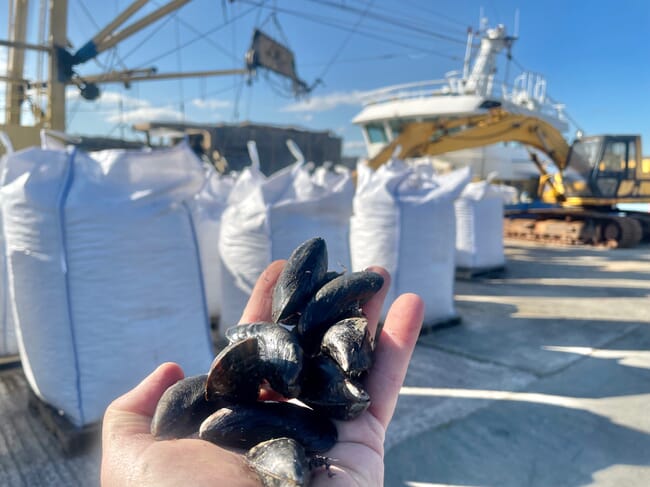
Since Brexit, regulatory changes mean it hasn’t been possible for the Menai Strait farmers to send their mussels for processing in the EU
Jack says that the FSA “are aware that concerns have been raised about the classification in the Menai Strait and the implications that our departure from the EU has had on this sector.”
“We will continue to work with our stakeholders, including harvesters in the Menai to review official controls and ensure delivery supports trade whilst maintaining public health protection,” he adds.

